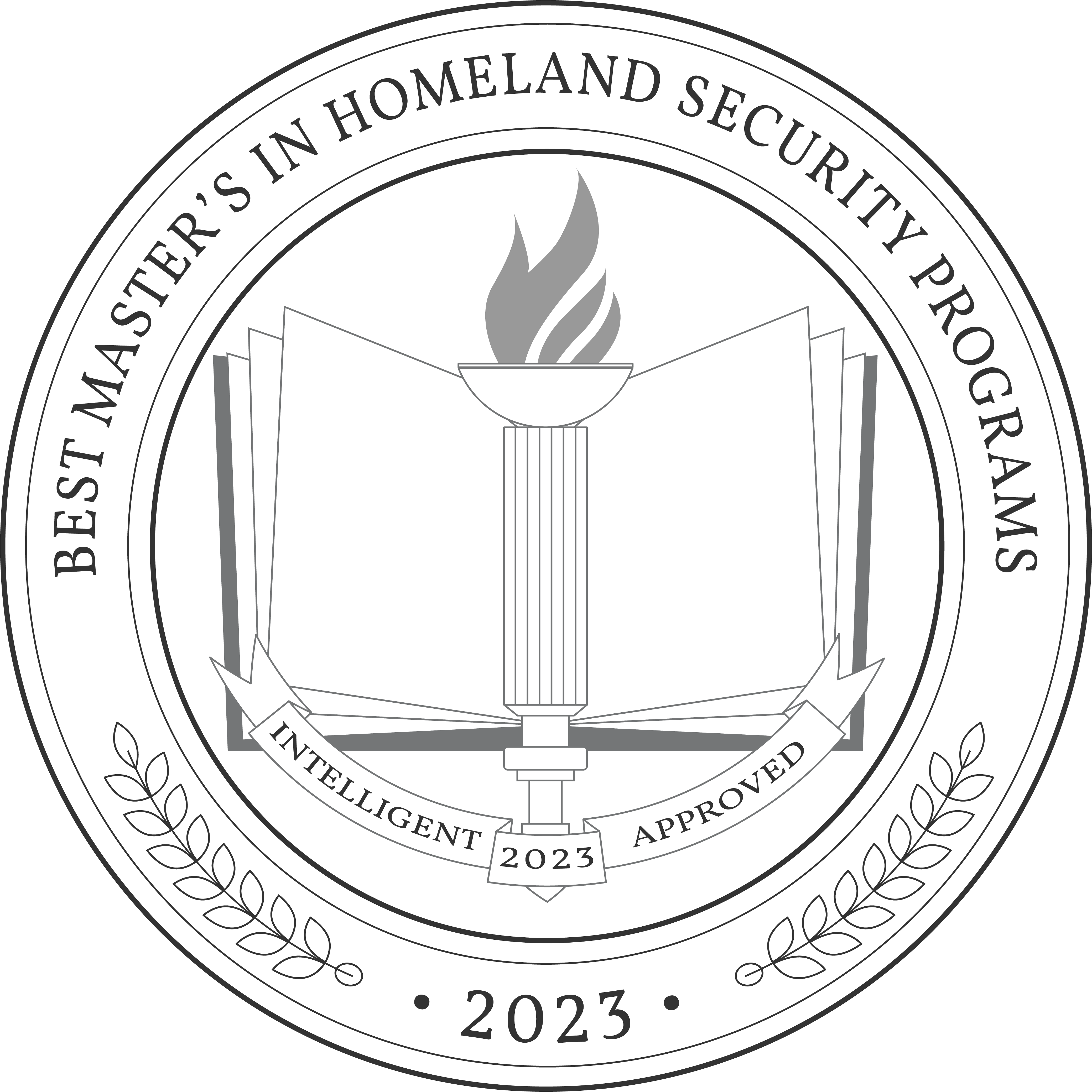Why This Matters
-
EARN $20,000 MORE THAN THE NATIONAL AVERAGE
Make at least $20,000 more per year than the national average income when you use your degree to gain in-demand positions, including emergency management, law enforcement leadership, and information security.
-
50+ CAREER PATHS OFFER PROFESSIONAL FLEXIBILITY
Whether you’re working for the Department of Homeland Security or in the private sector, a master’s in homeland security opens the door to over 50 career paths. These include emergency management, border patrol, senior law enforcement, and data analytics.
-
BENEFIT FROM 8% JOB GROWTH THROUGH 2029
Graduates of a homeland security degree program can feel secure with an 8% job growth in the next decade. Private investigators, IT professionals with homeland security training, and public safety officials are considered essential in the nation’s infrastructure.
Our Research
This list focuses on private and public colleges that offer a master’s degree in homeland security. Some programs combine homeland security coursework with relevant subjects, such as criminal justice, public administration, and business administration. Programs are offered in online, hybrid, and traditional on-campus formats.
Several organizations award accreditation to the top homeland security graduate programs. They include national and regional accreditors, such as the Higher Learning Commission (HLC), Middle States Commission on Higher Education (MSCHE), and New England Commission on Higher Education (NECHE). Active accreditation means your chosen degree program meets high standards for academic excellence.
We evaluated each program on the basis of flexibility, faculty, course strength, cost, and reputation. Then we calculated the Intelligent Score for each program on a scale from 0 to 100. For a more extensive explanation, check out Our Ranking Methodology.
- 55 hours to write this article
- 167 universities and colleges we assessed
- 358 education programs we compared
The Top 47 Master’s in Homeland Security Degree Programs

Discover More Options
What You Should Know About This Degree
A master’s in homeland security covers topics such as critical infrastructures, information technology, strategic management, and bioterrorism. Although some degree programs are combined with criminal justice or business administration coursework, homeland security education differs because it focuses on national security and mission-critical resource management.
While you’re researching the best homeland security graduate degrees, look for programs accredited by nationally recognized agencies. The HLC and MSCHE are the most common accrediting bodies for top master’s in homeland security programs. Other organizations include the Southern Association of Colleges and Schools Commission on Colleges (SACSCOC) and American Association of State College and Universities (AASCU).
Graduates who earn a master’s degree in homeland security can take their pick of potential employers. According to DHS, jobs are available to U.S. citizens at the federal, state, and local levels. There are also a significant number of graduates employed in the private sector. DHS oversees the Coast Guard, Secret Service, and various intelligence operations.
There are no certifications or licenses required upon graduation. However, if you plan to join DHS, you’ll be required to undergo a background check and possibly obtain security clearance based on your role. A background or certification in law enforcement, criminal justice, engineering, architecture, or information technology will enhance your chances of consideration for upper-level positions.
What’s Next?
As you evaluate master’s in homeland security programs, ask the following questions:
- Am I eligible for this program? Some master’s degree programs require a minimum score on the Graduate Record Examination (GRE). All programs stipulate you must have already earned a bachelor’s degree with a minimum undergraduate GPA.
- How long does it take to complete this online degree? The majority of master’s in homeland security programs we researched require completion of 30 to 36 credit hours. If you’re attending full-time, you can expect to finish the program in less than two years.
While researching degree programs, note the application requirements and deadlines. Some programs offer year-round enrollment, while others adhere to per-semester deadlines. You might need to provide professional or academic references, official transcripts, your résumé, and an admission essay tailored to the specific degree program. Gather these items well ahead of the submission deadlines.
Keep track of any degree programs that offer school-specific financial aid in scholarships, grants, or graduate assistant programs. If you have a background in law enforcement or the military, you might be eligible for additional tuition assistance as part of your benefits package. Complete the Free Application for Federal Student Aid (FAFSA) as soon as possible to unlock the most financial aid.